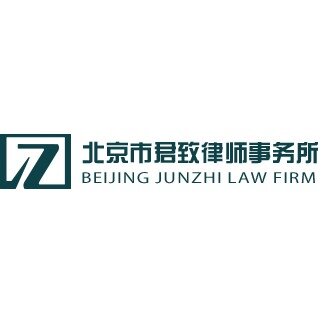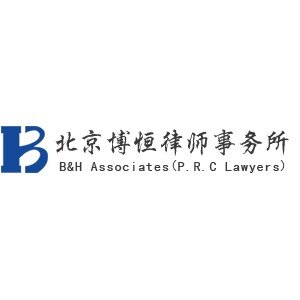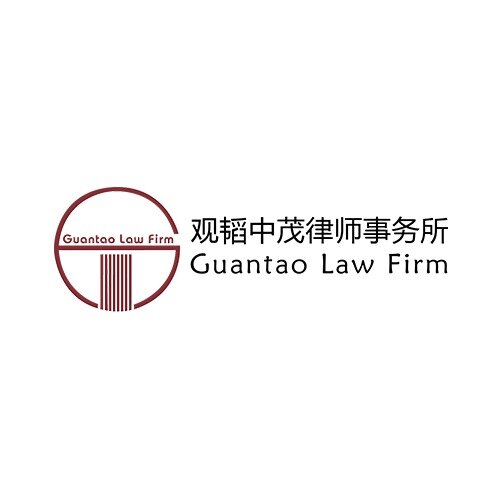Best Land Use & Zoning Lawyers in Beijing
Share your needs with us, get contacted by law firms.
Free. Takes 2 min.
Free Guide to Hiring a Real Estate Lawyer
List of the best lawyers in Beijing, China
About Land Use & Zoning Law in Beijing, China
Land use and zoning regulations in Beijing, China, are critical for urban planning and development. These laws govern how land can be used, which affects everything from real estate development to the preservation of historical areas. Beijing's rapid urbanization has made understanding and complying with these laws more crucial than ever. The legal framework for land use and zoning is primarily provided by national laws such as the Land Administration Law and the Urban and Rural Planning Law, yet implementation details often vary at the municipal level.
Why You May Need a Lawyer
Given the complexity of land use and zoning laws in Beijing, individuals and businesses may require legal assistance for various reasons. Common situations include applying for permits, appealing zoning decisions, negotiating property development rights, addressing land expropriation disputes, and ensuring compliance with local planning requirements. A lawyer with expertise in this field can provide guidance on navigating the regulatory landscape, representing clients in administrative procedures, and litigation if necessary.
Local Laws Overview
Local laws concerning land use and zoning in Beijing are designed to control the intensity and type of developments in different parts of the city. Key aspects include:
- Zoning regulations that categorize areas for residential, commercial, industrial, agricultural, and other specific uses.
- The Master Plan of Beijing, which directs the city's growth and development patterns.
- Laws regarding the transfer and lease of land-use rights, as all land is owned by the state or rural collectives.
- Requirements for obtaining construction and land-use permits, as well as guidelines for alteration, renovation, and demolition of existing structures.
- Environmental impact assessments for projects which might affect the ecological and residential quality of the area.
Frequently Asked Questions
What is the difference between land ownership and land-use rights in Beijing?
In Beijing, as in all of China, land is owned by either the state or rural collectives. Individuals and businesses cannot own land outright but can obtain land-use rights that permit them to use the land for a specified period.
How can I find out the zoning designation for my property?
You can obtain information on the zoning designation for your property through the Beijing Municipal Commission of Planning and Natural Resources or your district's local planning bureau.
What should I do if my property does not conform to the zoning laws?
If your property does not conform to local zoning laws, you may need to apply for variance or rezoning. A lawyer can help navigate these legal processes.
Can I appeal a zoning decision in Beijing?
Yes, zoning decisions can be appealed. The process typically involves administrative review procedures, and legal representation is highly recommended.
Are there any restrictions on foreign individuals or entities acquiring land-use rights in Beijing?
Foreign individuals and entities face certain restrictions when acquiring land-use rights in Beijing and must navigate a complex regulatory framework. Legal guidance is essential in these cases.
Who enforces land use and zoning laws in Beijing?
Land use and zoning laws in Beijing are enforced by the Beijing Municipal Commission of Planning and Natural Resources, along with district-based local planning bureaus.
What penalties can I face for non-compliance with land use and zoning laws?
Penalties for non-compliance may include fines, demolition orders, or requirements to restore property to its original condition.
How long are land-use rights granted for in Beijing?
Land-use rights can be granted for varying periods depending on the purpose, typically ranging from 40 to 70 years in urban areas for residential, commercial, or industrial uses.
What is the environmental impact assessment (EIA) in the context of land development?
An EIA is a study to predict the environmental consequences of a proposed development and must be reviewed and approved before certain construction projects can proceed.
How can I change the land-use rights of a property in Beijing?
Changing the land-use rights of a property generally requires approval from local authorities following a strict legal procedure. A lawyer can offer assistance in submitting the necessary applications and documents.
Additional Resources
Those seeking legal advice in land use and zoning in Beijing may find the following resources helpful:
- Beijing Municipal Commission of Planning and Natural Resources
- The Legal Affairs Office of the People's Government of Beijing Municipality
- Beijing Municipal Bureau of Ecology and Environment for environmental regulations
Additionally, consulting with professional law firms or legal service providers that specialize in real estate, land use, and zoning laws in Beijing is advisable.
Next Steps
If you need legal assistance in land use and zoning in Beijing, your first step should be to consult with a qualified lawyer who has expertise in these areas. They can review your case, advise you on the laws that apply to your situation, and represent you in any legal proceedings. Additionally, it is crucial to familiarize yourself with the land use and zoning codes applicable to your property and to stay updated with any changes in legislation or local regulations that could impact your rights.
Lawzana helps you find the best lawyers and law firms in Beijing through a curated and pre-screened list of qualified legal professionals. Our platform offers rankings and detailed profiles of attorneys and law firms, allowing you to compare based on practice areas, including Land Use & Zoning, experience, and client feedback.
Each profile includes a description of the firm's areas of practice, client reviews, team members and partners, year of establishment, spoken languages, office locations, contact information, social media presence, and any published articles or resources. Most firms on our platform speak English and are experienced in both local and international legal matters.
Get a quote from top-rated law firms in Beijing, China — quickly, securely, and without unnecessary hassle.
Disclaimer:
The information provided on this page is for general informational purposes only and does not constitute legal advice. While we strive to ensure the accuracy and relevance of the content, legal information may change over time, and interpretations of the law can vary. You should always consult with a qualified legal professional for advice specific to your situation.
We disclaim all liability for actions taken or not taken based on the content of this page. If you believe any information is incorrect or outdated, please contact us, and we will review and update it where appropriate.
















